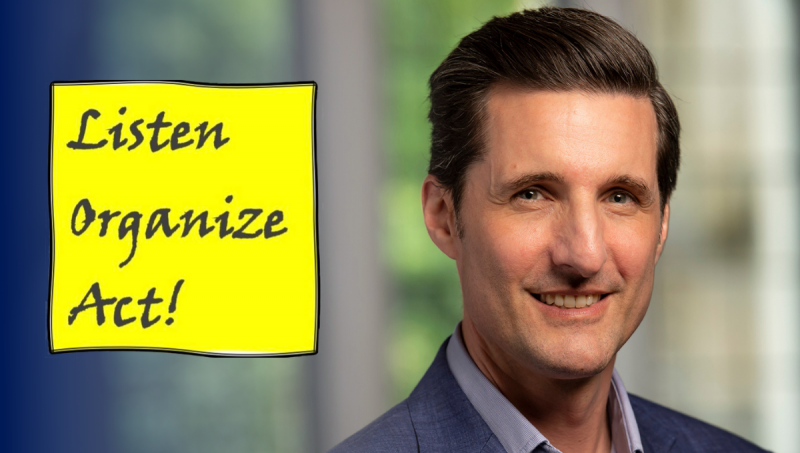Luke Bretherton, Robert E. Cushman Distinguished Professor of Moral & Political Theology, has launched a new podcast, “Listen, Organize, Act!,” in which he interviews organizers and Christian leaders around the country working in marginalized communities.
 The podcast, which will include 12-14 episodes and builds on a course Bretherton teaches, is intended to be a resource on the meaning, purpose, and mechanics of community organizing and democratic politics. Each episode is accompanied by readings and can be used in church-based discussion groups, with the series as a whole adding up to a stand-alone introduction to democratic organizing. The episodes pay particular attention to the ways organizing can help congregations develop and connect to local communities in order to foster meaningful change for the better.
The podcast, which will include 12-14 episodes and builds on a course Bretherton teaches, is intended to be a resource on the meaning, purpose, and mechanics of community organizing and democratic politics. Each episode is accompanied by readings and can be used in church-based discussion groups, with the series as a whole adding up to a stand-alone introduction to democratic organizing. The episodes pay particular attention to the ways organizing can help congregations develop and connect to local communities in order to foster meaningful change for the better.
Bretherton interviews leaders from coalitions affiliated with the Industrial Areas Foundation, unions, and other grassroots organizations.
“These are inspiring folks doing amazing work in difficult circumstances and for whom the church is a central foundation,” said Bretherton. "As a form of small ‘d’ democratic politics, community organizing is one in which churches have been the key institutions involved since its inception in the 1940s. Recent research shows there are now over 5,000 community-based institutions involved in this work in the U.S. and of them, around 3,500 are religious congregations. Yet despite being one of the most significant and innovative forms of democratic politics to emerge over the past 50 years, community organizing is little understood in broader Christian circles or by the public more broadly."
The podcast comes at a time when many Protestant pastors report having to address Christian nationalism, anti-democratic, authoritarian politics, and conspiracies in their congregations. Discussions explore how organizing connects democracy and the church, particularly at a local, congregational level, and how organizing embodies a distinctive vision and practice of democratic politics, one in which churches can play a key, constructive role.
The podcast is supported by a grant from the Kenan Institute for Ethics.